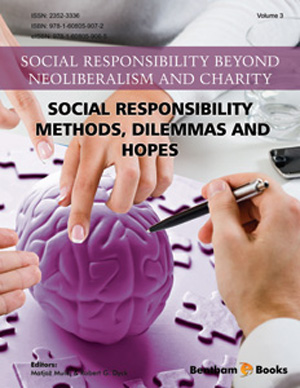Abstract
The ‘I think - you work’ management style failed to support psychological motivation of employees. A socially responsible society should change this practice to avoid the present neoliberal crisis. The purpose of this study was to measure selfdetermination and self-esteem of employees, e.g. in Slovenia in order to determine the level of both constructs and relationship between them. Both concepts are elaborated within the self-determination theory, which is linked to motivation, satisfaction (at work), personality development, well-being, happiness, well-being induces personal and social, but also economic benefit, and supports social responsibility. Self-determination assumes three basic psychological needs (autonomy, competence and relatedness) which are essential also for achieving well-being. Self-esteem in work organizations derives from signals sent by the environmental structures, significant others and individual’s feelings of efficacy and competence and is dependent on selfdetermination. Data was collected from the sample of 320 organizations in Slovenia.
Four hypotheses were formulated and tested with qualitative and quantitative research methods. We established that self-determination of employees in Slovenia impacts positively on their self-esteem. The data provides greater understanding of motivation behind employees’ work performance in Slovenia. With this information human resource managers can support employees’ holism and well-being and thus work towards better results for their organizations.
Keywords: Autonomy, competence, economic benefit, employees, eudaimonic tradition, happiness, holism, human resource management, motivation, productivity, psychological needs, psychological well-being, relatedness, selfdetermination, self-determination theory, self-esteem, slovenia, social responsibility, subjective emotional well-being, well-being.










.jpg)

